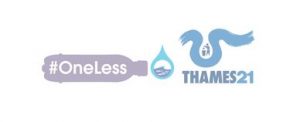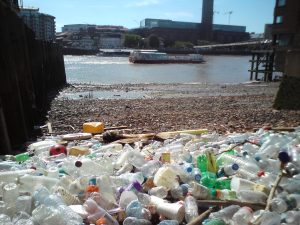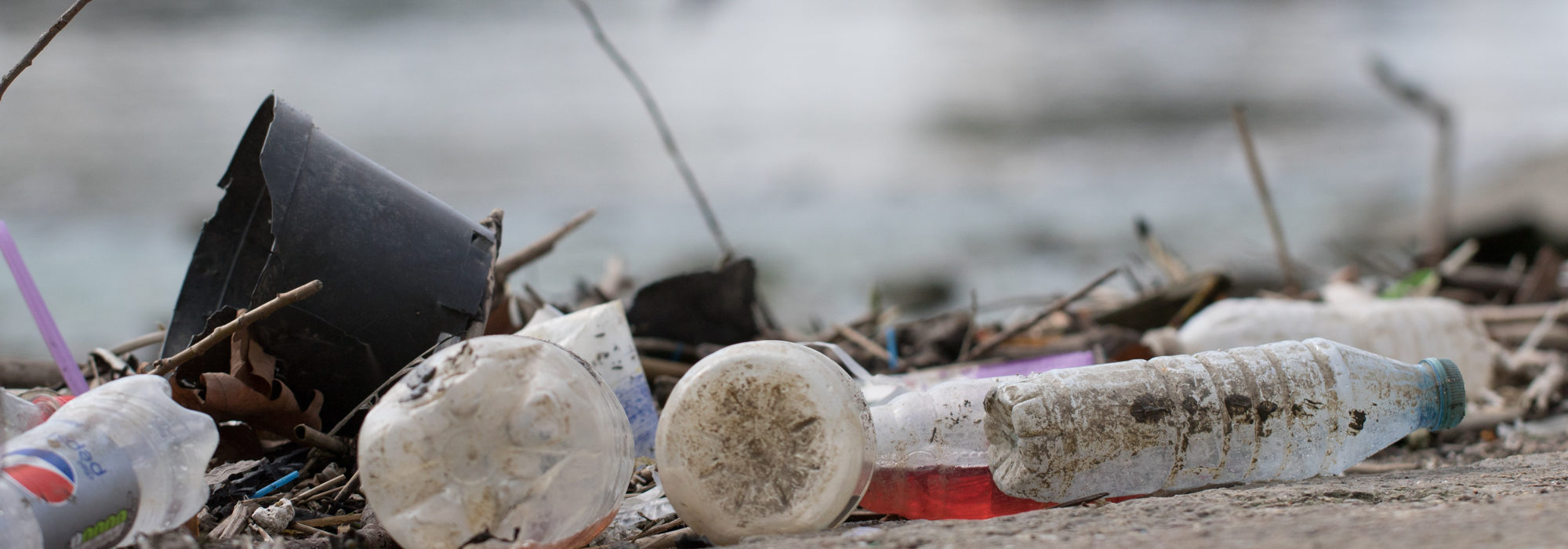Londoners set to remove record-breaking number of plastic bottles from Thames
 Thames21 and #OneLess alliance recruit citizen scientists for biggest-ever investigation of plastic bottles’ impact on the Thames
Thames21 and #OneLess alliance recruit citizen scientists for biggest-ever investigation of plastic bottles’ impact on the Thames
Date of release: August 30 2017: On 2 September, Londoners will take to 20 separate sites along the foreshore of the Thames as part of the biggest-ever investigation of how pollution by single-use plastic bottles is affecting London’s iconic river.

The Big Bottle Count is the biggest plastic bottle mapping project ever attempted in the capital, coordinated by waterways charity Thames21, as part of the wider #OneLess coalition. The Big Bottle Count event and the #OneLess campaign are encouraging Londoners to make the switch away from single-use plastic water bottles to more sustainable alternatives; such as drinking fountains and refillable bottles.
Working across more sites than ever before, ‘citizen scientists’ – members of the public who volunteer their time to collect invaluable data – are expected to smash last year’s record of finding 2,500 single-use plastic bottles along the Thames in one day.
Thames21 and #OneLess are calling on all Londoners to lend a hand. As of August 30, there are still spaces left in East London – budding citizen scientists who want to get involved can register their interest here: //www.eventbrite.co.uk/e/big-bottle-count-tickets-35787916622
“We were shocked by the number of bottles we found last year, but we suspect that this is just the tip of the iceberg,” said AJ McConville, programme coordinator for Thames River Watch, the Thames21 citizen science programme monitoring the health of the Thames. “We really need Londoners to help us map the scale of the problem so we know how badly the Thames is being impacted.”
Thames21 set up the Thames River Watch programme in 2014 to enable Londoners to help protect and monitor the Thames’ health by collecting data from the foreshore. It offers free one-day training to anyone interested in discovering more about the river’s health and releases a report annually on the findings.
The latest Thames River Watch research showed that plastic drink bottles and their lids represent 10 per cent of all litter found in the London’s iconic river and that, of these bottles, 47 per cent are specifically single-use plastic water bottles.
The #OneLess campaign is working to reduce the amount of plastic entering the ocean by encouraging people to stop using single-use plastic water bottles and use a refillable water bottle instead. Londoners are among the highest users of bottled water in the UK. The average adult buys 3.37 plastic water bottles every week – that’s 175 every year per person, and over a billion per year on a city level. Sadly, too many of these still end up in the River Thames and, ultimately, the ocean.
Fiona Llewellyn of #OneLess said: “More than 8 million tonnes of plastic enters the world’s ocean every year – and here in London, we are contributing to that. Plastic bottles that end up in the Thames can make their way out to the open ocean, where they harm wildlife and damage fragile marine ecosystems. By ‘going #OneLess’ and switching away from wasteful single-use plastic water bottles to refillable bottles, citizens of London can become part of the solution and drive a nation-wide ‘refill revolution’.”
The Greater London Authority’s Environment Committee published a report this year into the impact of plastic water bottles in London, drawing on key #OneLess and Thames River Watch data.
Since its launch, Thames River Watch has conducted 62 litter surveys across 15 sites on the Thames, through its network of trained citizen scientists. Its report earlier this year threw up new insights about the health of the river, and the growing impact of plastic on London’s iconic waterway.
AJ McConville added: “If you’re concerned about plastic finding its way into the river and into fish, this is a great way to do something about it. It’s also an opportunity to enjoy yourself in a beautiful spot away from the hustle and bustle. People love our Big Counts because they’re fun, and give Londoners a chance to come together as a community.”
The #OneLess campaign comprises a number of closely-aligned environmental NGOs, coordinated by international conservation charity ZSL (Zoological Society of London) from its base at ZSL London Zoo.
The Thames River Watch project is funded by Tideway, the company building the Thames Tideway Tunnel.
